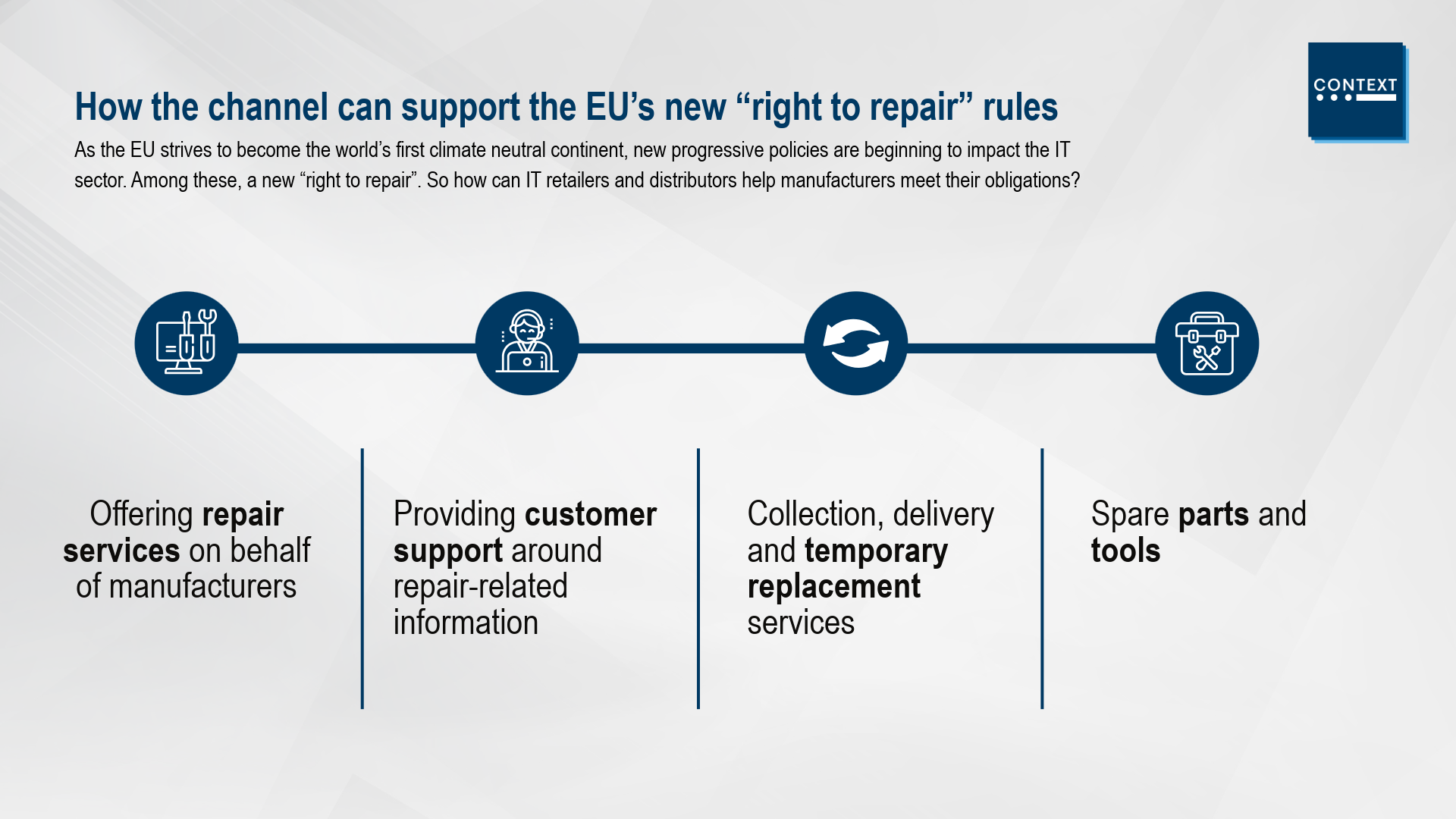As the EU strives to become the world’s first climate
neutral continent, new progressive policies are beginning to impact
the IT sector. Among these, a new “right to repair” directive promises
to extend the lifecycle of products by making it easier and more cost
effective to repair them.
The good news is that channel players could help
manufacturers to meet their new obligations – and in so doing burnish
their own green credentials, as well as expand opportunities for
business growth.
An obligation to repair
The European Parliament adopted the new directive
back in April.
Specifically, it demands that:
- Manufacturers provide “timely and cost–effective” repair
services for items including some technology products.
- They inform consumers about their rights to repair.
- They offer an extra year of warranty to any goods repaired under
warranty (this is designed to incentivise consumers to choose repair
rather than replacement).
- Manufacturers repair items such
as smartphones even after the warranty has expired.
- Consumers are able to borrow a device while theirs is being
repaired, or obtain a refurbished unit if it cannot be fixed.
- Consumers have ready access to spare parts, tools and repair
information, to help them assess and compare repair services.
Opportunities for the channel
This is a key part of the bloc’s green transition
plans. The European Commission claims the premature disposal of
consumer goods produces 261 million tonnes of CO2–equivalent
emissions, consumes 30 million tonnes of resources, and generates 35
million tonnes of waste in the EU each year.
So how can IT
retailers and distributors help manufacturers meet their obligations?
We have identified four potential ways to provide value-add services.

- Offering repair services on behalf of manufacturers
- Providing customer support around repair–related
information
- Collection, delivery and temporary replacement
services
- Spare parts and tools
The green transition will create many challenges
for IT manufacturers. But these will only increase the value and
importance of their channel partnerships.
To learn more about CONTEXT’s
initiatives and insights , visit the
CONTEXT Europe LinkedIn
page.
To stay up to date with the latest
news, sign up to our
newsletter dedicated to ESG .